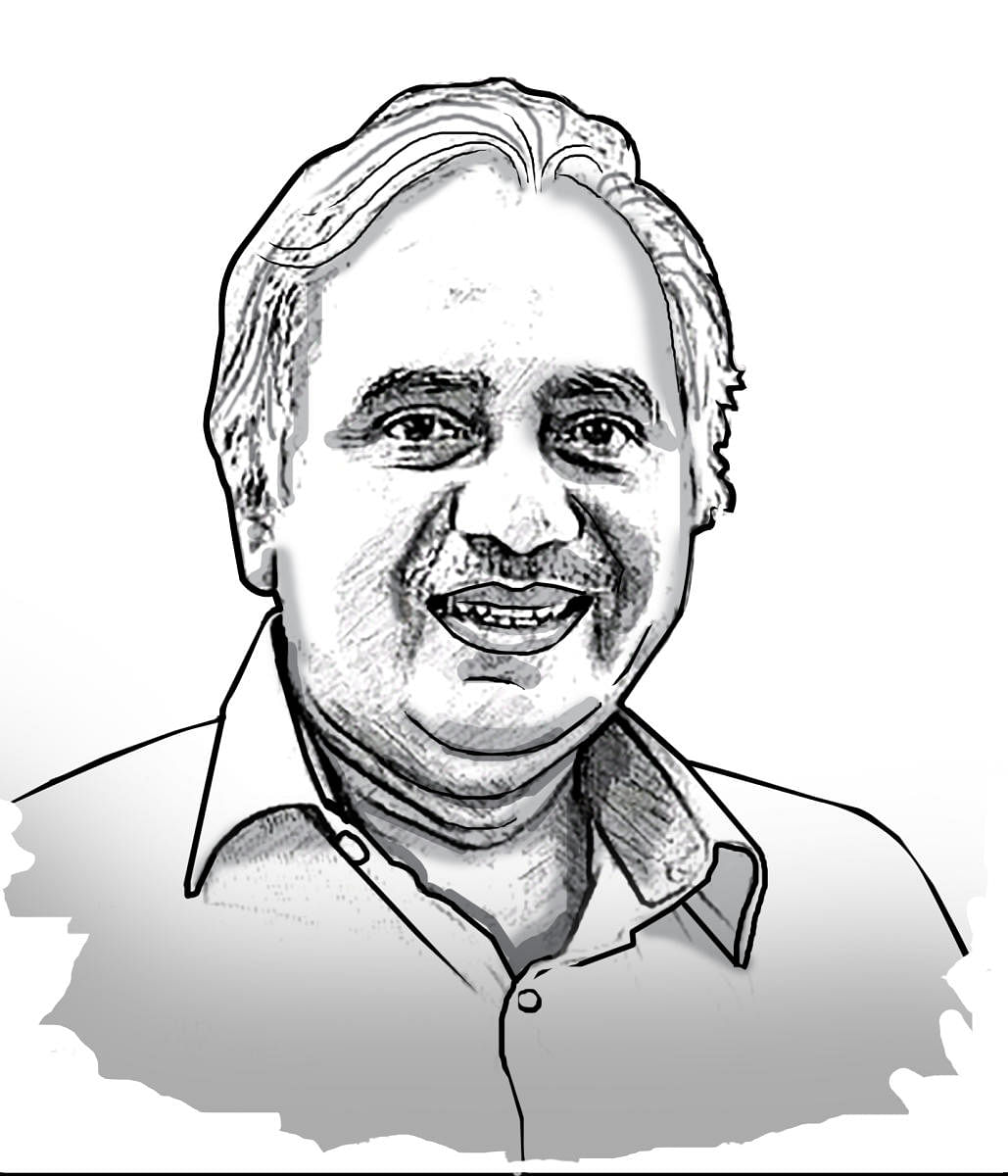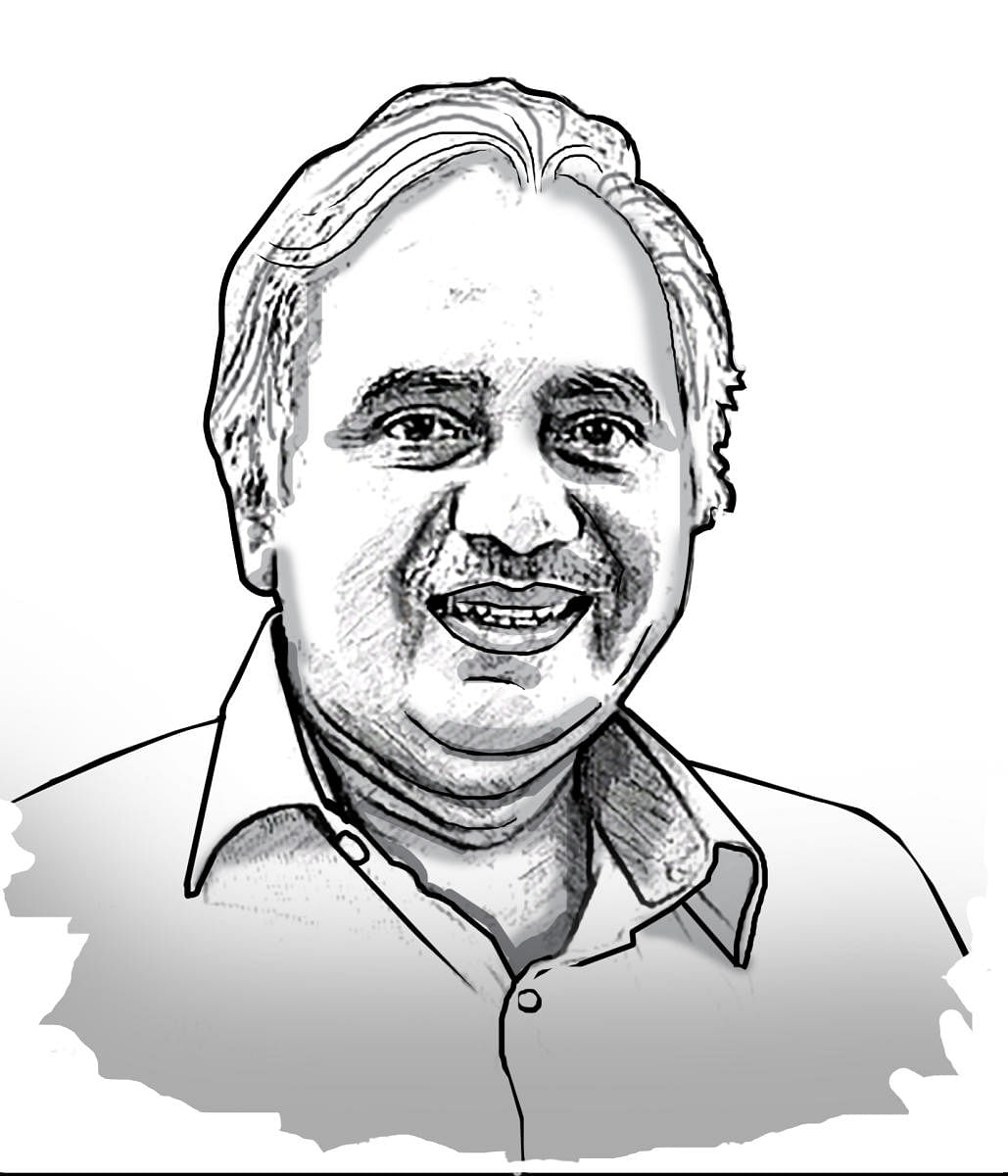
The nearly 135-year-old Congress party has once again begun the process of scrubbing and drubbing the issue of accountability for the miserable losses in the recently-held Assembly elections in five states. There was a time when Congress ruled all these states that have now been completely swept by the BJP, except Punjab where a relatively new ‘outsider’ party has stormed to power.
Two of the basic features of a democratic system apply to all political parties. One is that every election holds important lessons -- for the losers as well as for the winners. The second, and bitter, truth is that defeat imposes a very heavy penalty on political parties. The winner takes all, but the loser has always a duty to explain -- to itself and its support base -- why it didn’t make the cut. Congress, unfortunately, thinks it is exempt from these rules.
2014 was a watershed moment in the history of the Congress party, as it was in the much shorter history of the BJP. Even after the much-hated Emergency of 1975-77, the then leader of the Congress party, Indira Gandhi, had managed to win 153 seats. Her political acumen, leadership, endurance and, above all, the divided house of the then ruling alliance, catapulted her to power once again in less than 25 months of a humiliating defeat.
But 2014 was different. The then Prime Minister, in the Congress-led United Progressive Alliance (UPA), was head of the government but had very little or no voice in party affairs. The general perception was that the “accidental Prime Minister” had very little control over even the government he was tasked to head. The party was led by the ‘first family’, which regarded the then Prime Minister as totally expendable. The government was considered an epitome of corruption and indecision, seriously afflicted as it was by ‘policy paralysis’.
As against this, the BJP’s prime ministerial candidate in the Lok Sabha election that year was a successful Chief Minister whose economic development model was touted as unassailable and the panacea the country urgently needed. His campaign was far superior to that of the listless Congress. People found in him an effective alternative for the rickety Congress, which refused to jettison the ‘family’ which has treated the apex leadership of the party as its birth right. The rest, as they say, is history. What followed was a series of victories for the BJP and a series of humiliating defeats for the “family-owned” Congress.
2014 should have been a moment of reckoning and change for the Congress. Today, again, is one more such moment, but alas...
Not that there is no alternative to the ‘family’ within the party. But the stranglehold of the ‘family’ over it is so strong that the mere mention of “We are ready to quit” sent shivers down the spine of Congressmen (and women) -- whoever still has one that is; the spineless ones are anyway not in the reckoning anywhere.
The Congress party has consecutively failed to win elections under the leadership of the ‘family’. Worse, it has been continuously losing party leaders and workers. What then is the logic in saying that the party will not survive without the ‘family’, that it is the ‘family’ that keeps the party united? Where does the problem lie? Is it time for the Congress cadre to decide whether they want to win elections or are content to carry the ‘family’ deadwood on their shoulders from one ignominious defeat to another?
In the 2019 general elections, the BJP got 37.36% votes while the Congress came second with 19.49% of votes polled. The arithmetic of converting votes to seats is a complicated one in Indian elections. In states like Karnataka and Haryana, the Congress managed to poll a decent percentage of votes but got few seats in a multi-cornered contest. Elsewhere, in states like Delhi, the Congress vote share fell to just 4.36% in 2020, from 40.31% in 2008. In Tamil Nadu, where the Congress has never been able to rise to power since 1967 and political fortune swings between DMK and AIADMK, the Congress increased its vote share from 4.32% in 2014 to 12.76% in 2019.
States like Delhi, Punjab, Tamil Nadu, Andhra Pradesh, Telangana, West Bengal and Odisha prove another point -- that politics brooks no vacuum. The political space vacated by the Congress is filled by the local parties if the BJP is not strong enough to provide an alternative. The BJP appears to be winning only in states where it is in direct and straight contest with the Congress. One can argue that the same is true for Congress, too – it has in the recent past wrested power from the BJP in Madhya Pradesh (only to lose it again), Rajasthan, Chhattisgarh, and in Himachal Pradesh and Uttarakhand earlier. But in these states, it has managed to do so was only because of effective local leadership, not due to the influence or charisma of the ‘family’. In Punjab, meanwhile, the ‘family’ successfully shot itself in the foot.
The writing on the wall is clear. The Congress should stop pursuing divisive politics, shed wholesale negativity and oppose the present government where it should be opposed but appreciate its good work, too, and promise to do better if given a chance. Its survival depends on it turning a new leaf, on strong local leaders in the states, in making prudent alliances, and in rebuilding its cadre. If in this process the ‘family’ has to be jettisoned, it should be done clinically, and sooner rather than later.
(Seshadri Chari reads between the lines on big national and international developments from his vantage point in the BJP National Executive and the RSS.)
